Surf’s up: Miami’s legendary Surf Club is now resurgent and awash with design talent

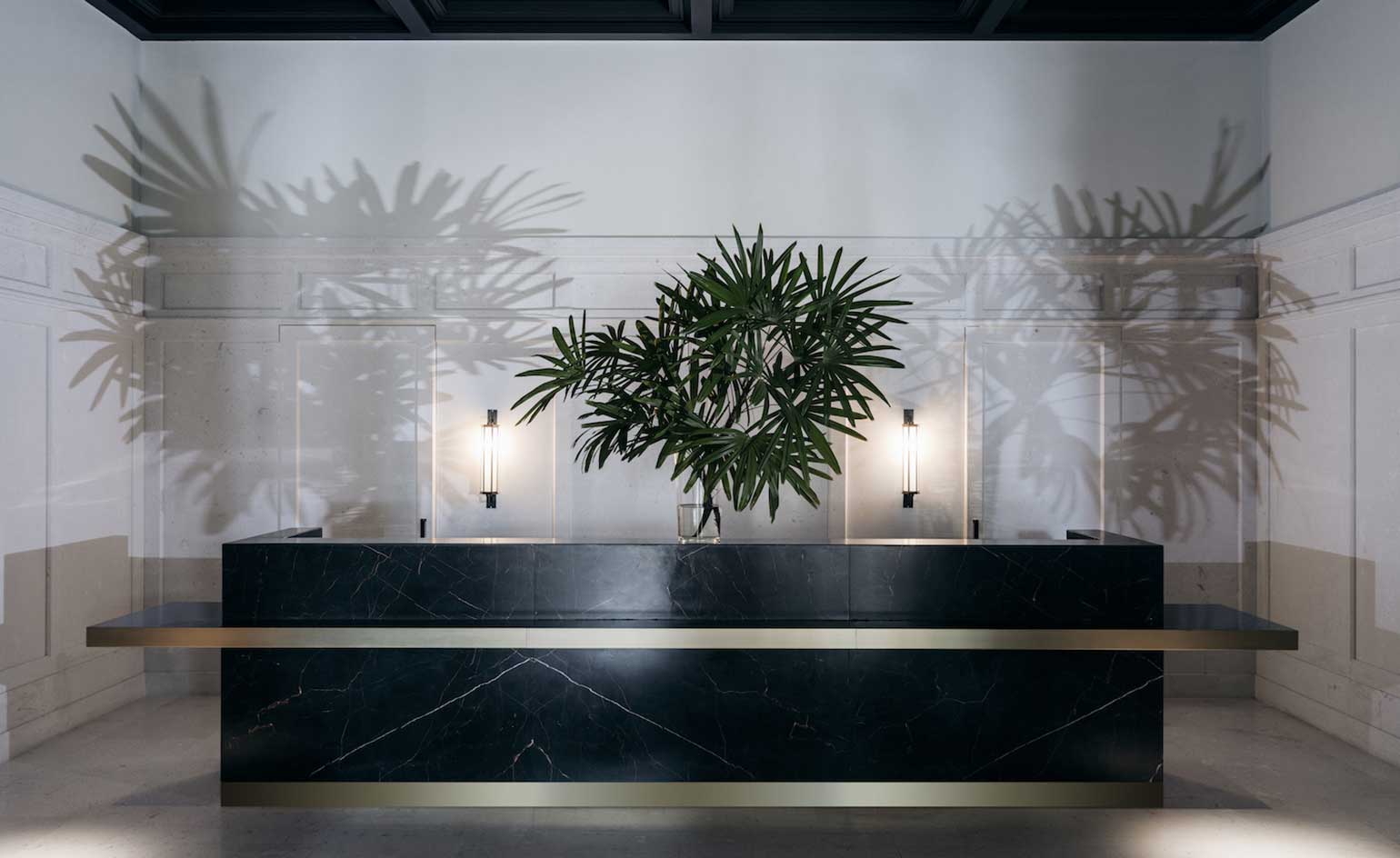
The Four Seasons Hotel at The Surf Club in Miami has been one of the most talked-about openings in recent times. The original Surf Club was founded by tyre tycoon Harvey Firestone in 1930. In its midcentury heyday it was the scene of beach-front misbehavings of the most exclusive sort. This was a club with closed doors, behind which anything could happen and much did. There were poolside fashion shows, late-night boxing galas, elephants at parties and booze on the beach during Prohibition. Visitors included Winston Churchill, Liberace, Frank Sinatra, Alfred Hitchcock and Mohammad Reza, Shah of Iran. It was a fantasy, a bubble, a world of its own.
More than 85 years later, and after a few decades of slumber, The Surf Club is reopening as the latest jewel in the crown of the Four Seasons group. The intrigue isn’t (yet) about the A-list guests and their antics, but instead the stellar collaborators who have brought a dormant legend back to life.
The grand revival has been far more than an exercise in signing up sellable design stars. It’s not enough just to commission big names – it takes skill and guile to get them to deliver their best work. In this case, the man marshalling the forces is The Surf Club’s owner, Nadim Ashi of developer Fort Partners. Ashi understands quality and knows how to build relationships that deliver it. He negotiated the purchase of The Surf Club from all 110 member-owners with the promise of giving it a new life that would do justice to its past glory. Ashi then brought on board the best of design’s best, and has coaxed greatness from them. ‘We haven’t let go of anything less than excellence,’ Ashi says. ‘We surrounded ourselves with difficult people who pushed us and we pushed them. If you have a grand vision, then you need the best people to execute it. If you create something unique, it will last: one of my favourite fish restaurants in Byblos, Lebanon, has been around for 3,000 years.’
Pritzker Prize-winning architect Richard Meier has designed the 77-room hotel that cantilevers over the original 1930s Mediterranean Revival clubhouse, designed by Russell T Pancoast. It is flanked by two 12-storey residential towers, also operated by Four Seasons and designed by Meier. Together, the complex is an exercise in discreet contemporary modernism.
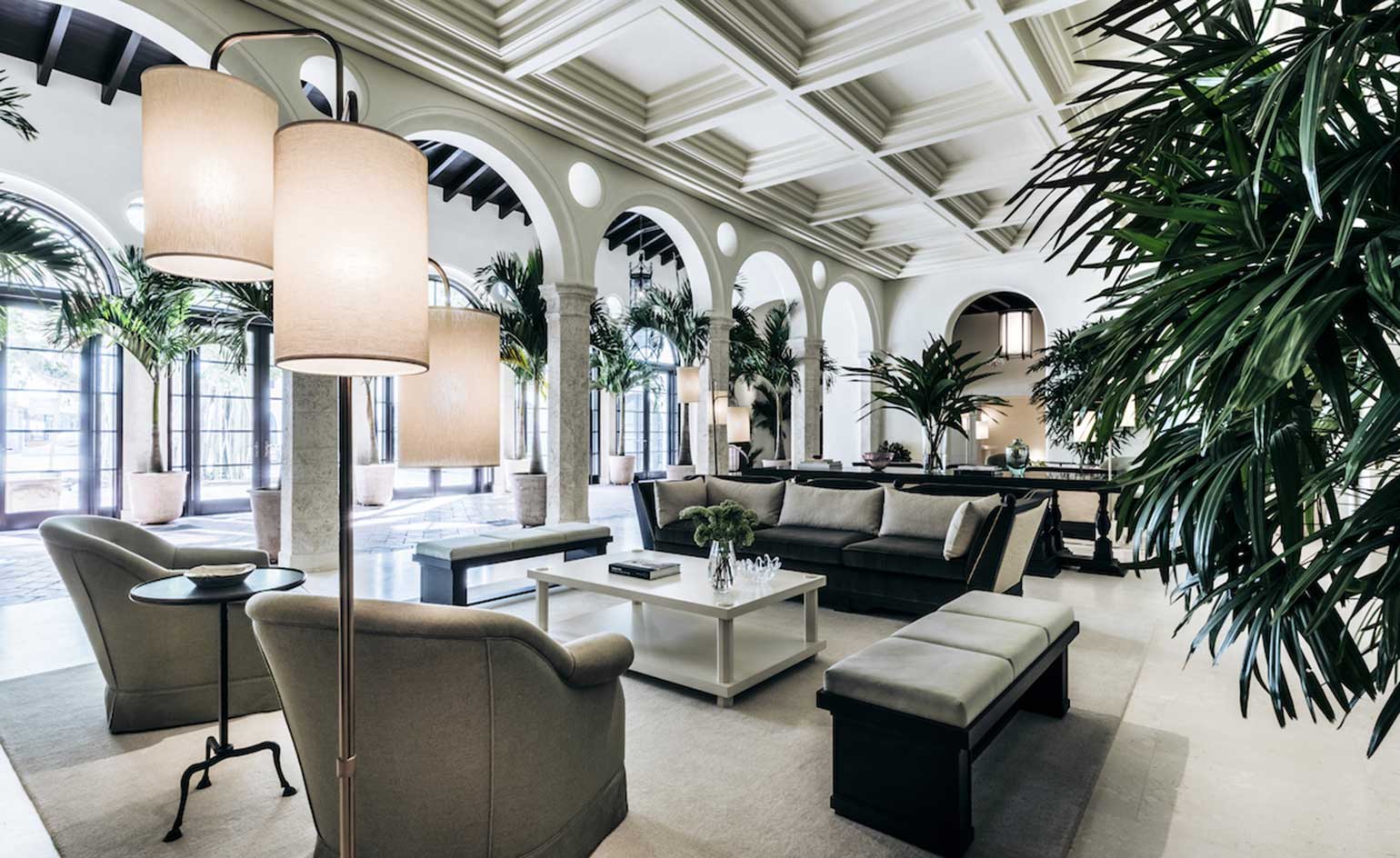
‘There were so many spectacular stories to tell here,’ Dirand says. ‘There was a rich archive of photographs where you could feel the energy and the mood'
While Meier’s architecture serves as a vanishing backdrop, reflecting and disappearing into the endless Miami skies, it is Paris-based designer Joseph Dirand’s interior spectacle that brings The Surf Club experience to life for today’s crowd. Dirand peeled back the layers of time to restore the original detailing in the public areas, and he has reinvigorated them with cinematic splendour. The arched entrance hall, known as Peacock Alley, will surely soon be one of the world’s most Instagrammed interior spaces. ‘There were so many spectacular stories to tell here,’ the designer says. ‘There was a rich archive of photographs where you could feel the energy and the mood. Our aim was to capture that mood, but not copy the look. The public areas are where the feeling of the older building meets the architecture of the new – they should have the vocabulary of the original, but the language should be contemporary.’
Eateries are also in the hands of greats. In his first foray outside the Amal Coast, Antonio Sersale of Positano’s Le Sirenuse will helm the club’s restaurant. Thomas Keller of The French Laundry in California and Per Se in New York will also open a restaurant within the grounds, designed by Martin Brudnizki.
The hotel’s bedrooms tell a slightly different story to its more theatrical public areas. Dirand talks about the ‘silence of details, the play of light, shapes, shadows and colours in the rich views’. There’s a 1970s loucheness to the spaces, with splashes of green textile and veined stone contrasting with fluted cast-plaster walls, coffered ceilings and white marble bathrooms. A custom-designed built-in banquette, with a travertine swivel table, adds a touch of maritime fun – ‘something glamorous and naughty’, says Dirand.
The breezy beachside cabanas were the heart of The Surf Club and they remain so in its new incarnation. Also designed by Dirand, the cabanas bring elements of the public areas together with the cool bedroom aesthetic: terrazzo floors, rattan furniture and careful midcentury details. The combination of continuity in spirit and contemporary service will make this hotel experience a unique one. In the hands of Four Seasons, quality control should be carefully maintained, without losing the decadence and irreverence that gave the original Surf Club its soul. As Ashi puts it, ‘We live in times where people want to belong to something. Our business model is not real estate, it’s about memories of the past, in the present, for the future.’
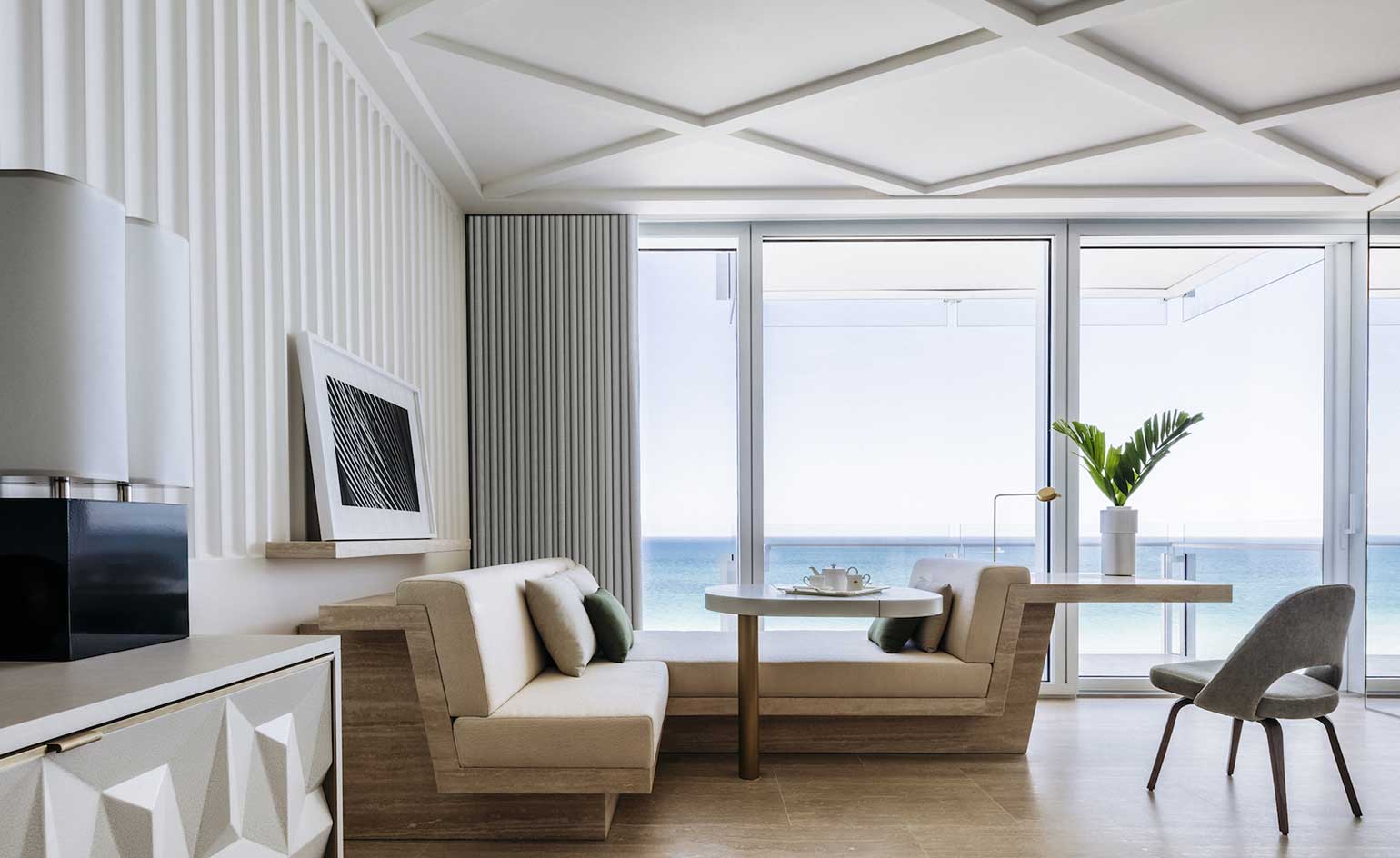
Each bedroom has a custom-designed travertine sofa, banquette and desk with a swivel table
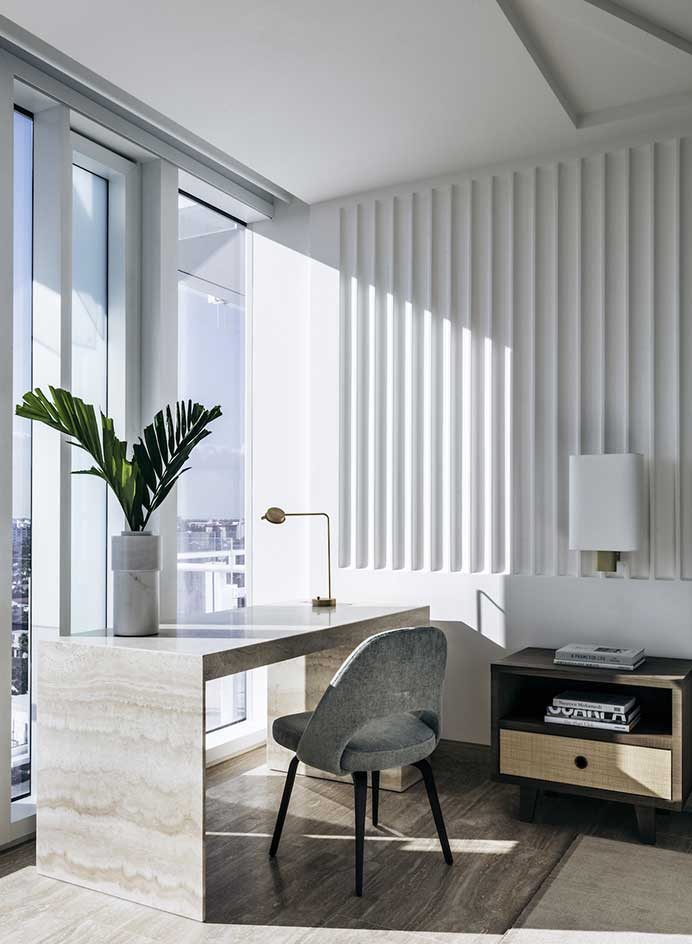
There’s a 1970s loucheness to the spaces, with splashes of green textile and veined stone contrasting with fluted cast-plaster walls
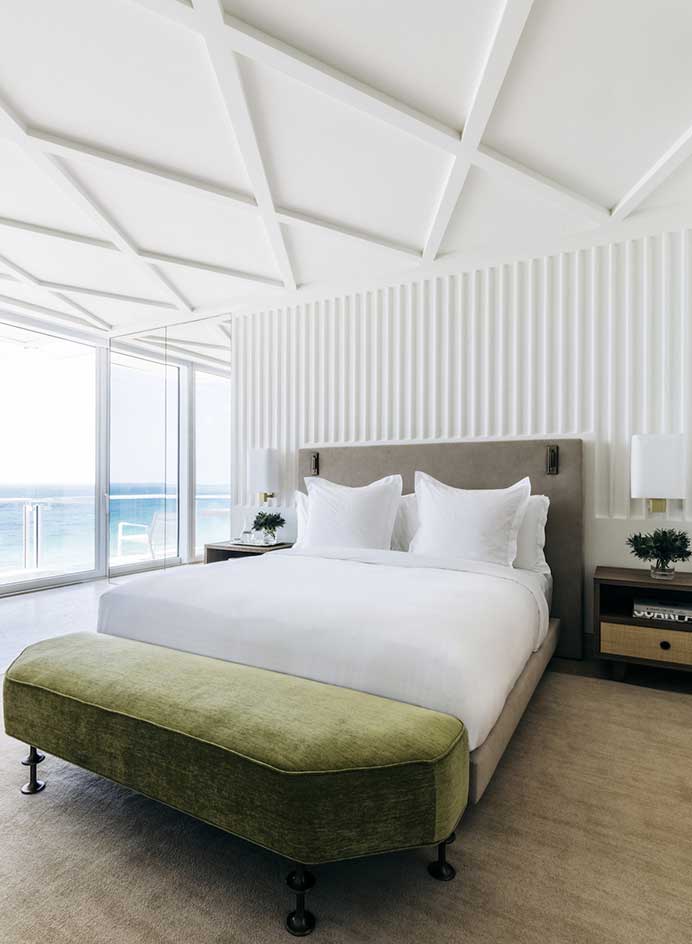
The custom-designed bed, produced by Molteni & C, in an ocean-facing bedroom
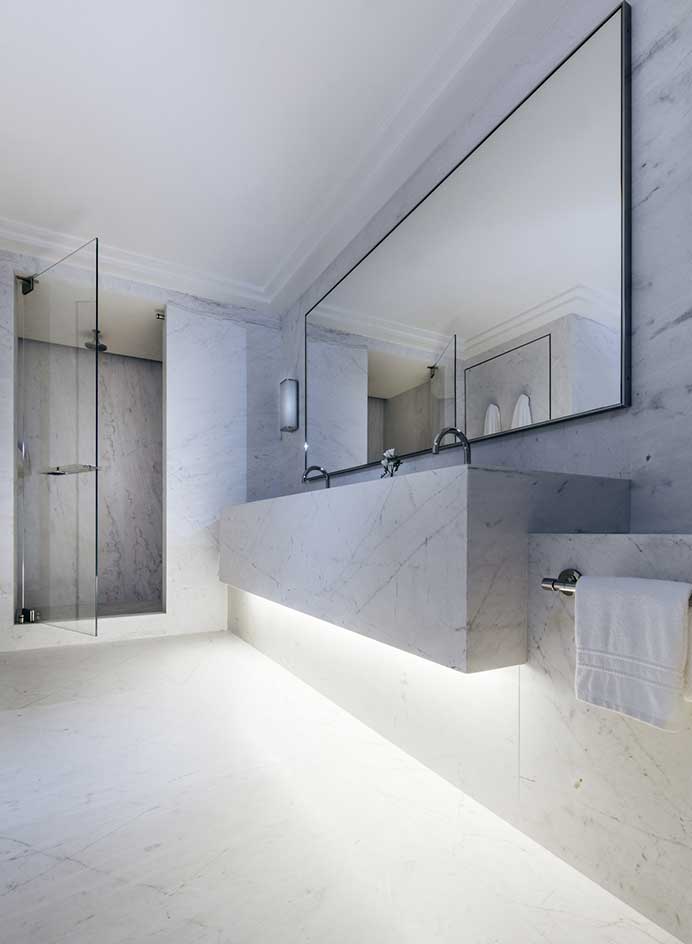
Bathrooms are lined in white marble
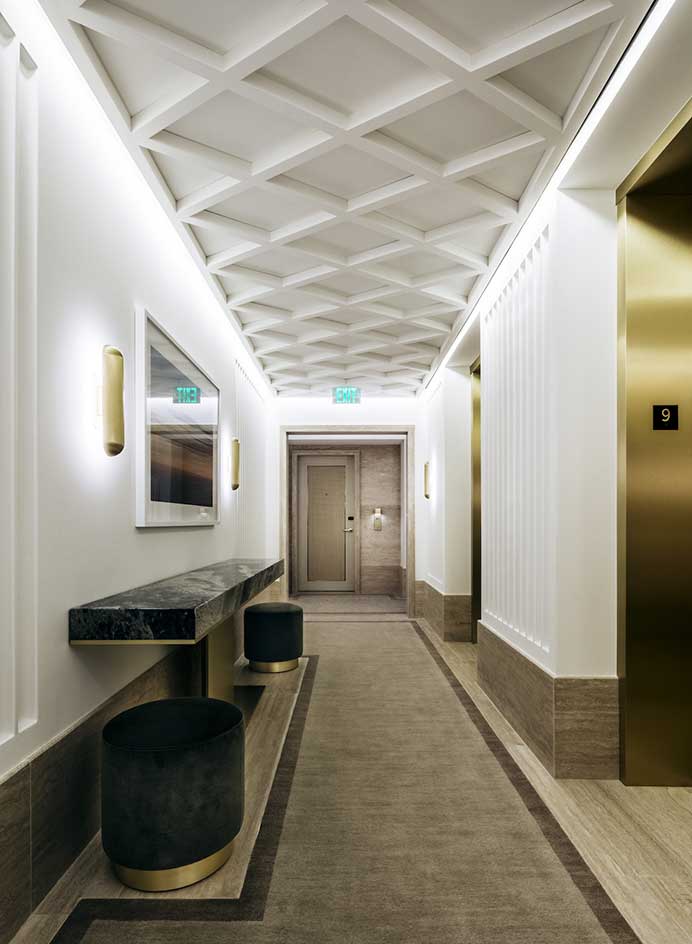
Hallways and circulation spaces feature brass, travertine and polished plaster
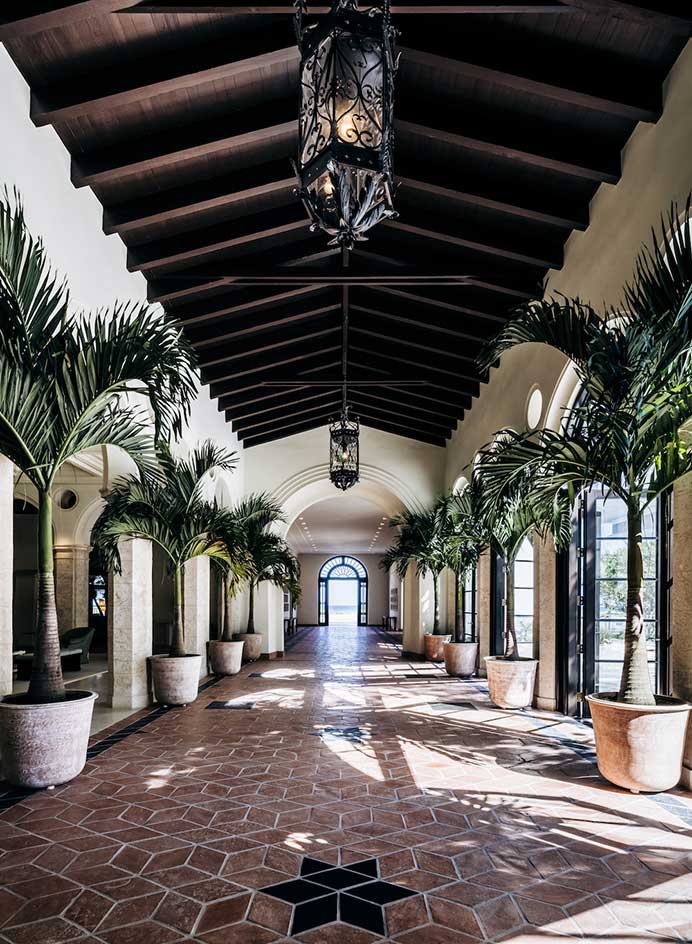
Peacock Alley, the original entrance hallway, offers views of the ocean
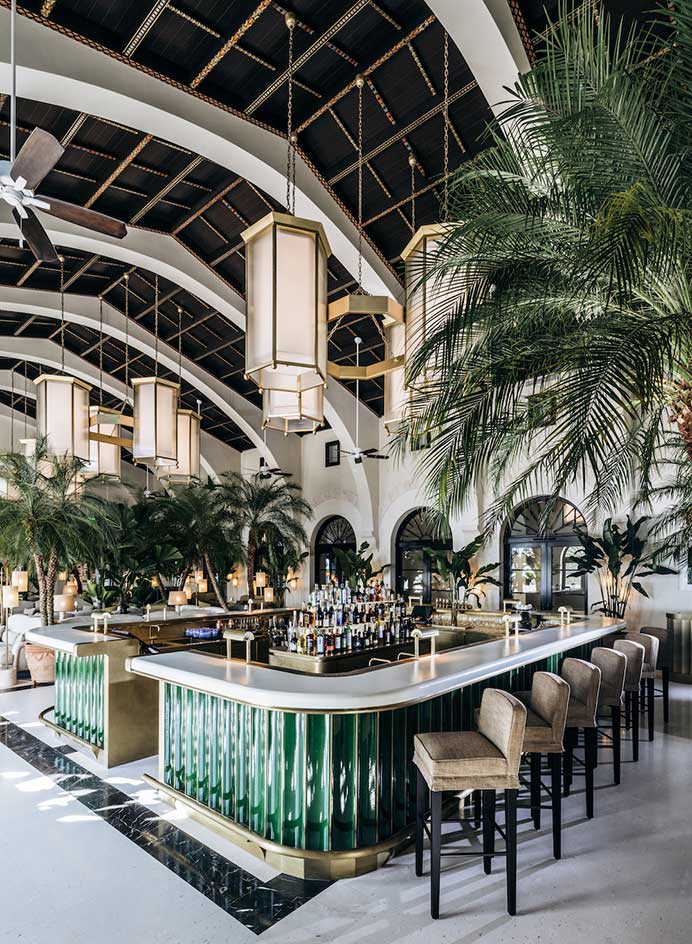
The Joseph Dirand-designed champagne bar within restaurant Le Sirenuse
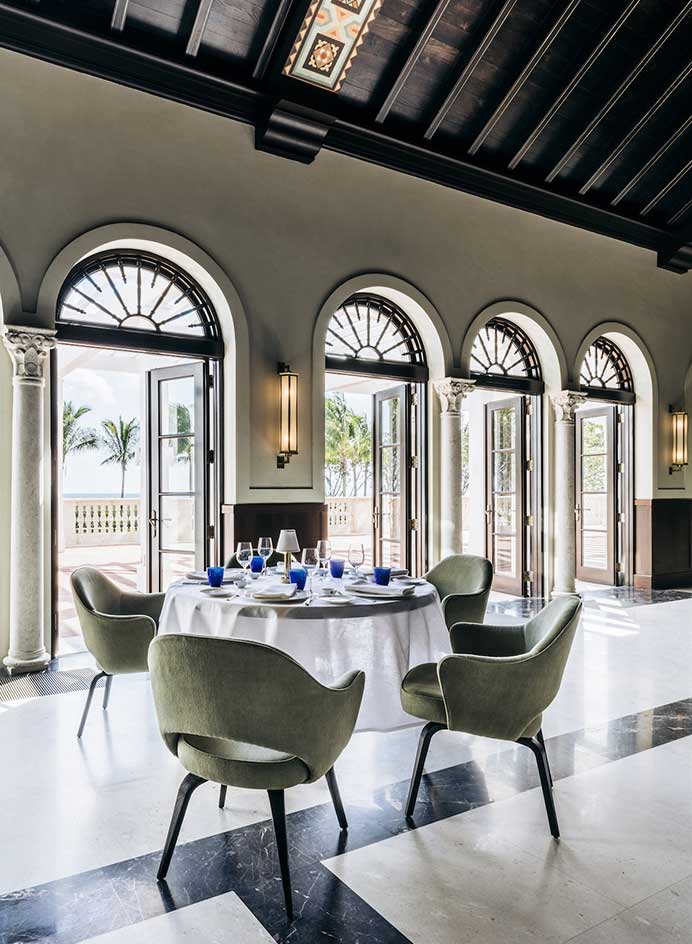
Le Sirenuse restaurant. Designed by Joseph Dirand, it features Eeero Saarinen’s ‘Executive’ armchair for Knoll
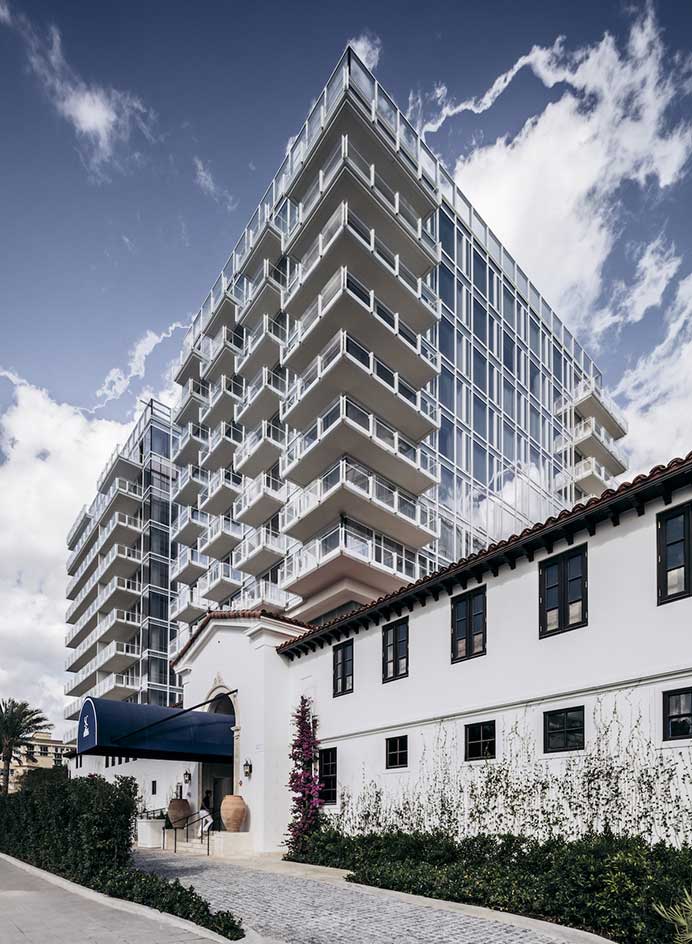
View from a hotel balcony of one of the complex’s new, Richard Meier-designed apartment buildings and the ocean beyond
INFORMATION
For more information, visit the Four Seasons website
ADDRESS
9011 Collins Avenue
Surfside, FL 33154
Receive our daily digest of inspiration, escapism and design stories from around the world direct to your inbox.

Hugo is a design critic, curator and the co-founder of Bard, a gallery in Edinburgh dedicated to Scottish design and craft. A long-serving member of the Wallpaper* family, he has also been the design editor at Monocle and the brand director at Studioilse, Ilse Crawford's multi-faceted design studio. Today, Hugo wields his pen and opinions for a broad swathe of publications and panels. He has twice curated both the Object section of MIART (the Milan Contemporary Art Fair) and the Harewood House Biennial. He consults as a strategist and writer for clients ranging from Airbnb to Vitra, Ikea to Instagram, Erdem to The Goldsmith's Company. Hugo recently returned to the Wallpaper* fold to cover the parental leave of Rosa Bertoli as global design director, and is now serving as its design critic.